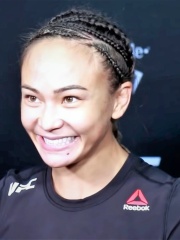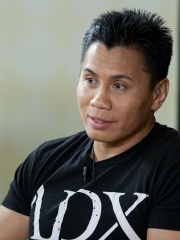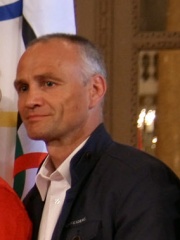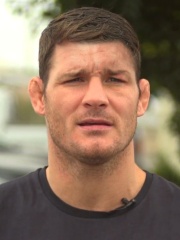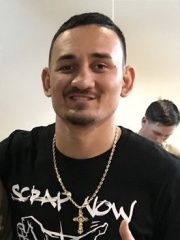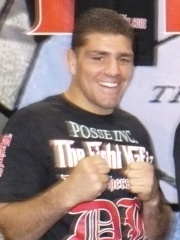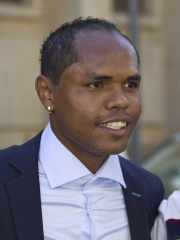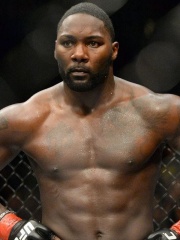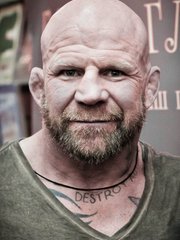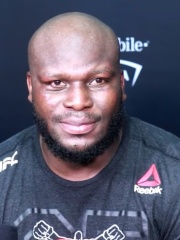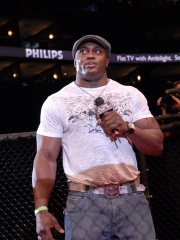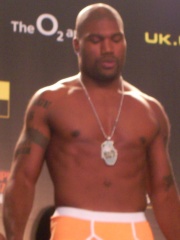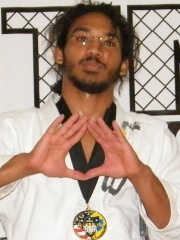MARTIAL ARTS
T.J. Dillashaw
1986 - Today
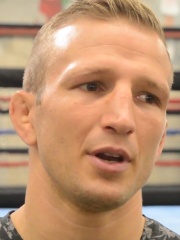
 T.J. Dillashaw
T.J. Dillashaw
Tyler Jeffrey Dillashaw (born February 7, 1986) is an American former professional mixed martial artist who competed in the Ultimate Fighting Championship (UFC), where he is a former two-time UFC Bantamweight Champion. Dillashaw competed on the 2011 Ultimate Fighter season. In 2014, he won the UFC Bantamweight Championship by dethroning Renan Barão, who was on a 32-fight unbeaten streak. Dillashaw lost the title to Dominick Cruz by split decision in 2016 before regaining it against Cody Garbrandt in 2017. Read more on Wikipedia
His biography is available in 19 different languages on Wikipedia. T.J. Dillashaw is the 97th most popular martial arts (up from 170th in 2024), the 13,547th most popular biography from United States (up from 17,427th in 2019) and the 25th most popular American Martial Arts.
Memorability Metrics
Page views of T.J. Dillashaw by language
Among MARTIAL ARTS
Among martial arts, T.J. Dillashaw ranks 97 out of 179. Before him are Michelle Waterson, Jan Błachowicz, Ciryl Gane, Cung Le, Héctor Lombard, and Udo Quellmalz. After him are Michael Bisping, The Korean Zombie, Yoshiyuki Matsuoka, Gary Goodridge, Max Holloway, and Nick Diaz.
Most Popular Martial Arts in Wikipedia
Go to all RankingsMichelle Waterson
1986 - Present
HPI: 49.48
Rank: 91
Jan Błachowicz
1983 - Present
HPI: 49.14
Rank: 92
Ciryl Gane
1990 - Present
HPI: 49.13
Rank: 93
Cung Le
1972 - Present
HPI: 48.84
Rank: 94
Héctor Lombard
1978 - Present
HPI: 48.83
Rank: 95
Udo Quellmalz
1967 - Present
HPI: 48.75
Rank: 96
T.J. Dillashaw
1986 - Present
HPI: 48.68
Rank: 97
Michael Bisping
1979 - Present
HPI: 48.68
Rank: 98
The Korean Zombie
1987 - Present
HPI: 48.63
Rank: 99
Yoshiyuki Matsuoka
1957 - Present
HPI: 48.53
Rank: 100
Gary Goodridge
1966 - Present
HPI: 48.53
Rank: 101
Max Holloway
1991 - Present
HPI: 48.49
Rank: 102
Nick Diaz
1983 - Present
HPI: 48.46
Rank: 103
Contemporaries
Among people born in 1986, T.J. Dillashaw ranks 314. Before him are Ronny, Augusto Fernández, Gabriel Paletta, Jorge Sebastián Núñez, Milo Moiré, and Kim Junsu. After him are David Martin, Mario, José Manuel Jurado, Diego Sinagra, Nino Schurter, and Evghenia Guțul.
Others Born in 1986
Go to all RankingsRonny
SOCCER PLAYER
1986 - Present
HPI: 48.76
Rank: 308
Augusto Fernández
SOCCER PLAYER
1986 - Present
HPI: 48.75
Rank: 309
Gabriel Paletta
SOCCER PLAYER
1986 - Present
HPI: 48.73
Rank: 310
Jorge Sebastián Núñez
SOCCER PLAYER
1986 - Present
HPI: 48.71
Rank: 311
Milo Moiré
PAINTER
1986 - Present
HPI: 48.69
Rank: 312
Kim Junsu
SINGER
1986 - Present
HPI: 48.69
Rank: 313
T.J. Dillashaw
MARTIAL ARTS
1986 - Present
HPI: 48.68
Rank: 314
David Martin
SOCCER PLAYER
1986 - Present
HPI: 48.66
Rank: 315
Mario
ACTOR
1986 - Present
HPI: 48.64
Rank: 316
José Manuel Jurado
SOCCER PLAYER
1986 - Present
HPI: 48.64
Rank: 317
Diego Sinagra
SOCCER PLAYER
1986 - Present
HPI: 48.61
Rank: 318
Nino Schurter
CYCLIST
1986 - Present
HPI: 48.60
Rank: 319
Evghenia Guțul
POLITICIAN
1986 - Present
HPI: 48.51
Rank: 320
Among MARTIAL ARTS In United States
Among martial arts born in United States, T.J. Dillashaw ranks 25. Before him are Anthony Johnson (1984), Sean O'Malley (1994), Jeff Monson (1971), Derrick Lewis (1985), Bobby Lashley (1976), and Michelle Waterson (1986). After him are Max Holloway (1991), Nick Diaz (1983), Quinton Jackson (1978), Tank Abbott (1965), Benson Henderson (1983), and Belal Muhammad (1988).
Anthony Johnson
1984 - 2022
HPI: 50.42
Rank: 19
Sean O'Malley
1994 - Present
HPI: 50.35
Rank: 20
Jeff Monson
1971 - Present
HPI: 50.29
Rank: 21
Derrick Lewis
1985 - Present
HPI: 50.01
Rank: 22
Bobby Lashley
1976 - Present
HPI: 49.71
Rank: 23
Michelle Waterson
1986 - Present
HPI: 49.48
Rank: 24
T.J. Dillashaw
1986 - Present
HPI: 48.68
Rank: 25
Max Holloway
1991 - Present
HPI: 48.49
Rank: 26
Nick Diaz
1983 - Present
HPI: 48.46
Rank: 27
Quinton Jackson
1978 - Present
HPI: 48.43
Rank: 28
Tank Abbott
1965 - Present
HPI: 47.93
Rank: 29
Benson Henderson
1983 - Present
HPI: 47.28
Rank: 30
Belal Muhammad
1988 - Present
HPI: 47.25
Rank: 31
